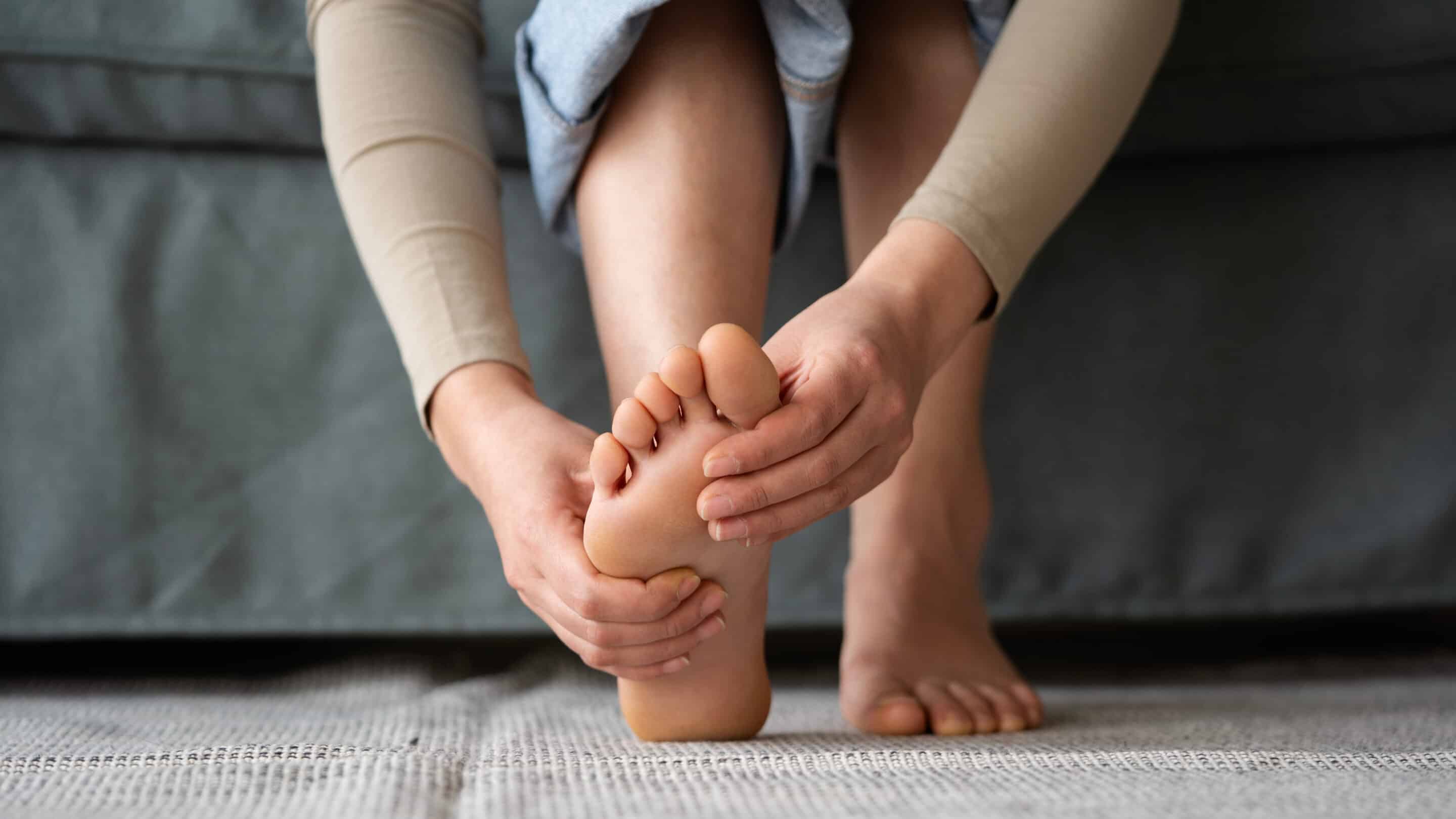Diabetic Foot Care
Diabetes affects millions of Americans and is one of the leading causes of serious foot problems. Persistently high blood sugar can injure both nerves and blood vessels, leading to a higher risk of infection, delayed wound healing, and, in severe cases, amputation.
Recognizing potential dangers early and taking preventive action can greatly lower the likelihood of serious foot complications in individuals with diabetes.
Here, you’ll learn:
- How diabetes impacts your feet and overall circulation
- The primary risks for diabetic foot problems: Peripheral Neuropathy and Peripheral Arterial Disease (PAD)
- Key preventive strategies to maintain long-term foot health
- When to see our podiatrist for professional diabetic foot care
How Diabetes Affects Foot Health
The Connection Between Diabetes and Foot Complications
Diabetes often affects foot health by reducing blood circulation and causing nerve damage. Together, these issues make the feet more vulnerable to injury, infection, and delayed healing.
Primary Risks: Nerve Damage (Peripheral Neuropathy) and Poor Circulation (Peripheral Arterial Disease – PAD)
- Peripheral Neuropathy – Nerve damage that limits sensation in the feet, making it harder to notice injuries.
- Peripheral Arterial Disease (PAD) – Restricted blood flow that slows the healing process and increases infection risk.
Peripheral Neuropathy: Nerve Damage & Risk of Injury
What is Peripheral Neuropathy?
Peripheral neuropathy is nerve damage caused by prolonged high blood sugar levels. Over time, nerve damage can make it difficult to sense pain, temperature shifts, or pressure in your feet.
How Diabetes Damages Nerves Over Time
Elevated glucose levels gradually weaken nerve function, disrupting signal transmission and causing symptoms from discomfort to complete numbness.
Symptoms to Watch For:
- Tingling, burning, or “electrical” pain sensations
- Numbness and loss of feeling in the feet
- Increased risk of unnoticed wounds and infections
Peripheral Arterial Disease (PAD): Poor Circulation & Healing Issues
How Diabetes Restricts Blood Flow to the Feet
PAD occurs when blood vessels narrow due to plaque buildup, reducing circulation to the lower extremities.
Why Poor Circulation Increases the Risk of Foot Ulcers
Reduced circulation slows the body’s ability to heal, causing even minor wounds to take much longer to recover.
Signs of PAD in Diabetic Patients:
- Cold or numb feet
- Slow-healing wounds
- Leg pain or cramping while walking (claudication)
Preventative Diabetic Foot Care
Daily Foot Inspections
- Check for cuts, blisters, redness, swelling, or skin changes.
- Use a handheld mirror or ask someone to help check the bottoms and sides of your feet.
Proper Foot Hygiene and Moisturizing
- Wash feet daily with lukewarm water and mild soap.
- Dry thoroughly, especially between the toes.
- Moisturize your heels and soles regularly, avoiding the spaces between toes to prevent fungal growth.
Footwear Safety and Protection
- Always wear shoes, even indoors, to avoid injuries.
- Choose well-fitted, supportive footwear.
- Inspect the insides of shoes before wearing to remove debris.
Exercise and Circulation Improvement
- Participate in gentle, low-impact activities such as walking, swimming, or cycling to improve circulation.
- Limit long periods of sitting and prop your feet up to encourage better blood flow.
- Quit smoking to improve blood circulation and healing ability.
When to See Our Podiatrist
Contact our office right away if you experience:
- Persistent swelling, redness, or pain
- Non-healing sores, ulcers, or infections
- Noticeable skin temperature changes in one or both feet
Expert Diabetic Foot Care in Richardson, TX
Dr. David Haddad specializes in diabetic foot care, offering comprehensive evaluations, preventive strategies, and personalized treatment plans to protect your foot health.
Treatment Options for Diabetic Foot Complications:
- Advanced wound care for ulcers and infections
- Custom orthotics to relieve pressure points
- Expert management of neuropathy and circulation issues
Early intervention saves feet and lives. Don’t wait for minor issues to become serious. Call (972) 690-5374 today to schedule an appointment with Dr. Haddad and keep your feet healthy.


